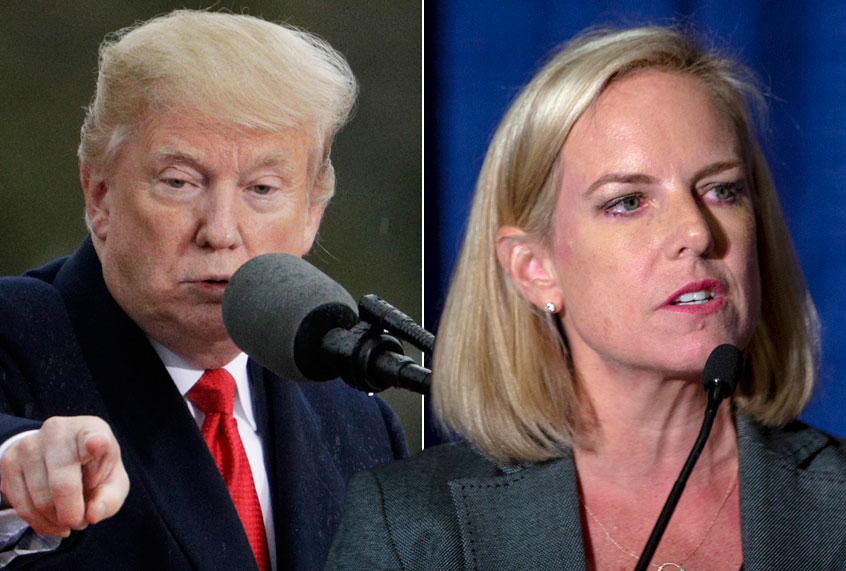The Department of Homeland Security has disbanded a unit of intelligence analysts who monitored domestic terrorism threats even as department officials admit that the threat of domestic terrorism is growing.
The DHS Office of Intelligence and Analysis has reassigned a group of intelligence analysts who focused on domestic threats, resulting in a significant drop in reports and analysis about threats from extremists and white supremacists, The Daily Beast reported. Local law enforcement officials told the outlet they are no longer receiving important information from DHS since the unit was disbanded last year.
“It’s especially problematic given the growth in right-wing extremism and domestic terrorism we are seeing in the U.S. and abroad,” a former intelligence official told The Daily Beast.
The move came after new Intelligence and Analysis chief David Glawe reorganized the division.
A DHS spokesperson told the outlet that it works with other law enforcement agencies to gather “threat information regardless of a threat actor’s ideology” and shares that information with other agencies.
“The same people are working on the issues,” a senior DHS official insisted. “We just restructured things to be more responsive to the I&A customers within DHS and in local communities while reducing overlap with what the FBI does. We actually believe we are far more effective now.”
But Los Angeles County Sheriff’s Department Sgt. Mike Abdeen told The Daily Beast that the Office of Intelligence and Analysis has been “mostly silent” for the past six months despite previously sending his office a significant amount of information.
“It’s been very quiet lately,” Abdeen said. “It’s changed with the new administration. It doesn’t seem to be as robust, as active, as important — it is important, I’m sure, but it’s not a priority. It doesn’t seem like engagement, outreach, and prevention are seen as a priority as we used to see in the past. There were roundtable meetings in the past, there was more activity, more training, more seminars. Now it seems like it’s gone away.”
As a result of the “reorganization,” officials said the office must now coordinate with the FBI to share information with local law enforcement.
“While I cannot speak to what is going on at DHS I&A today, the analysis provided by I&A personnel on domestic extremism was essential during my tenure at DHS,” former acting head of Intelligence and Analysis John Cohen told the outlet. “Based on the current threat environment, I believe those same efforts are essential today.”
Disbanding the domestic terrorism intelligence unit is a curious move after DHS Secretary Kirstjen Nielsen said in a speech at Auburn University last month that her department would work to prevent attacks like the one in New Zealand, where a white nationalist gunman killed 50 people at two mosques.
“We, too, have seen the face of such evil with attacks in places such as Charlottesville, Pittsburgh and Charleston,” Nielsen said. “I want to make one thing very clear: We will not permit such hate in the homeland.”
But Nate Snyder, a former DHS official who worked on combating violent extremism, told The Daily Beast that the department’s actions contradict her claims.
“You hear the secretary and this administration say how domestic terrorism is a clear priority and how resources will be bolstered, but you can’t say that and then all of a sudden get rid of the unit that’s there to detect threats and share information with our first responders, law enforcement, and federal partners,” he said. “You can’t have it both ways.”


